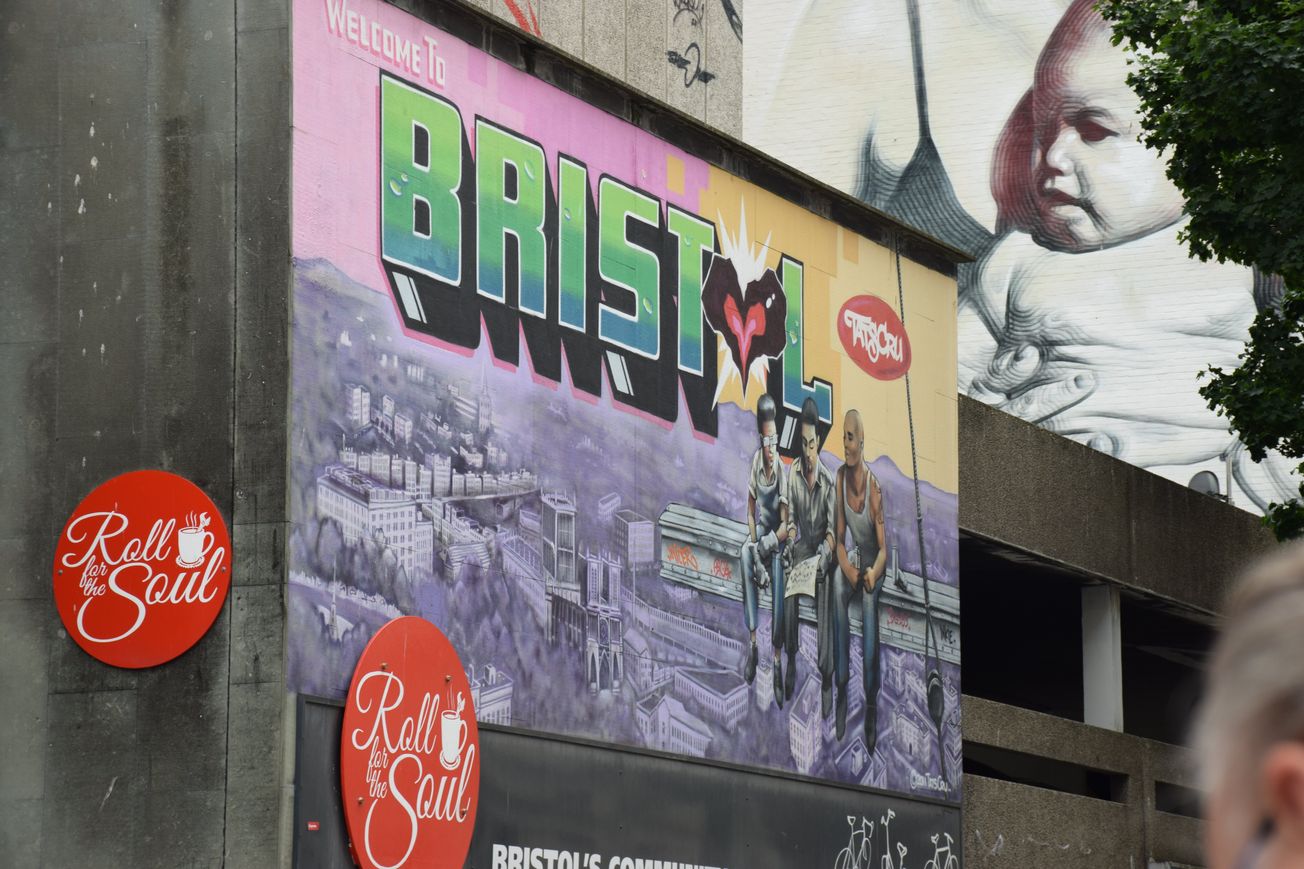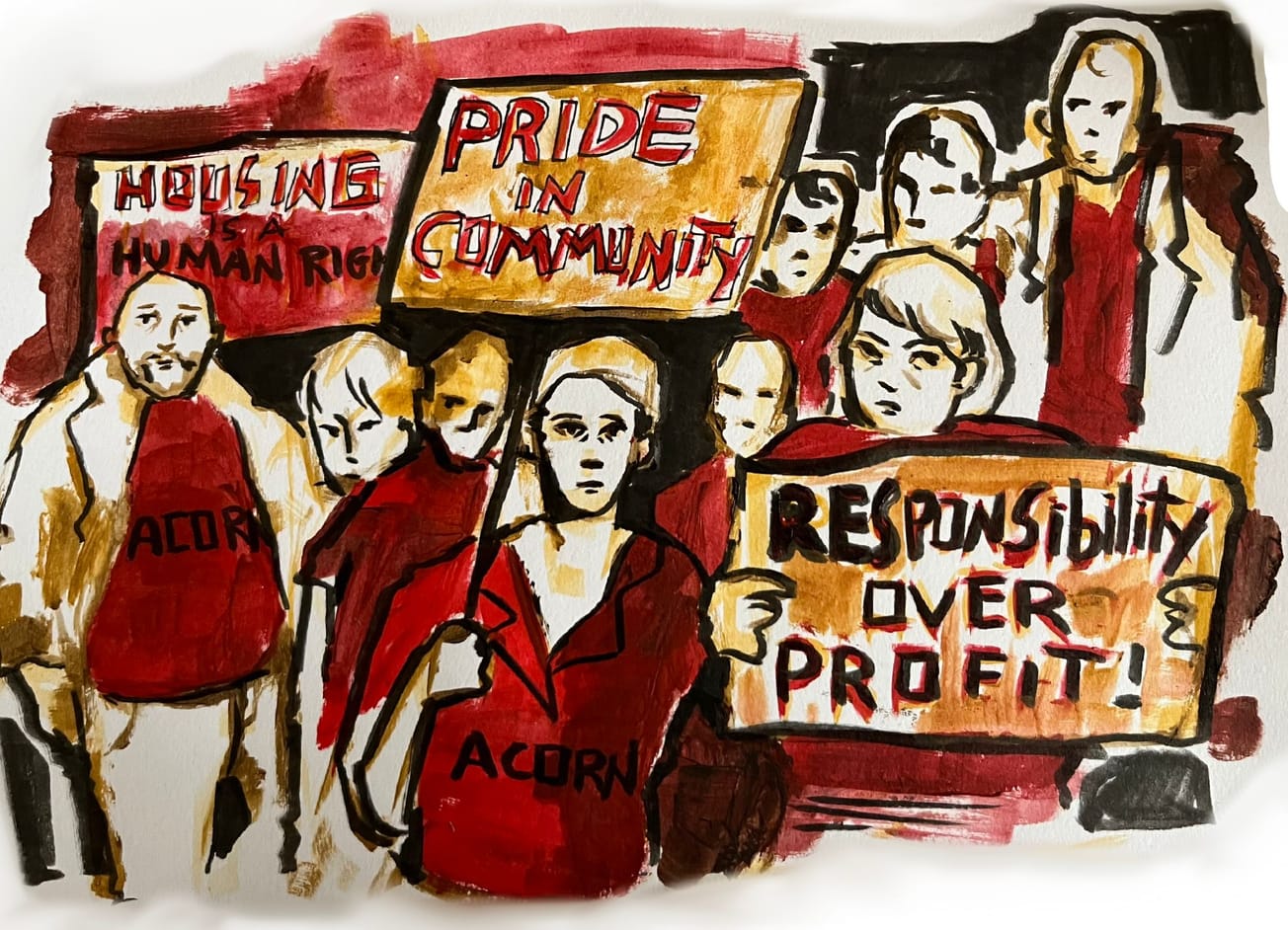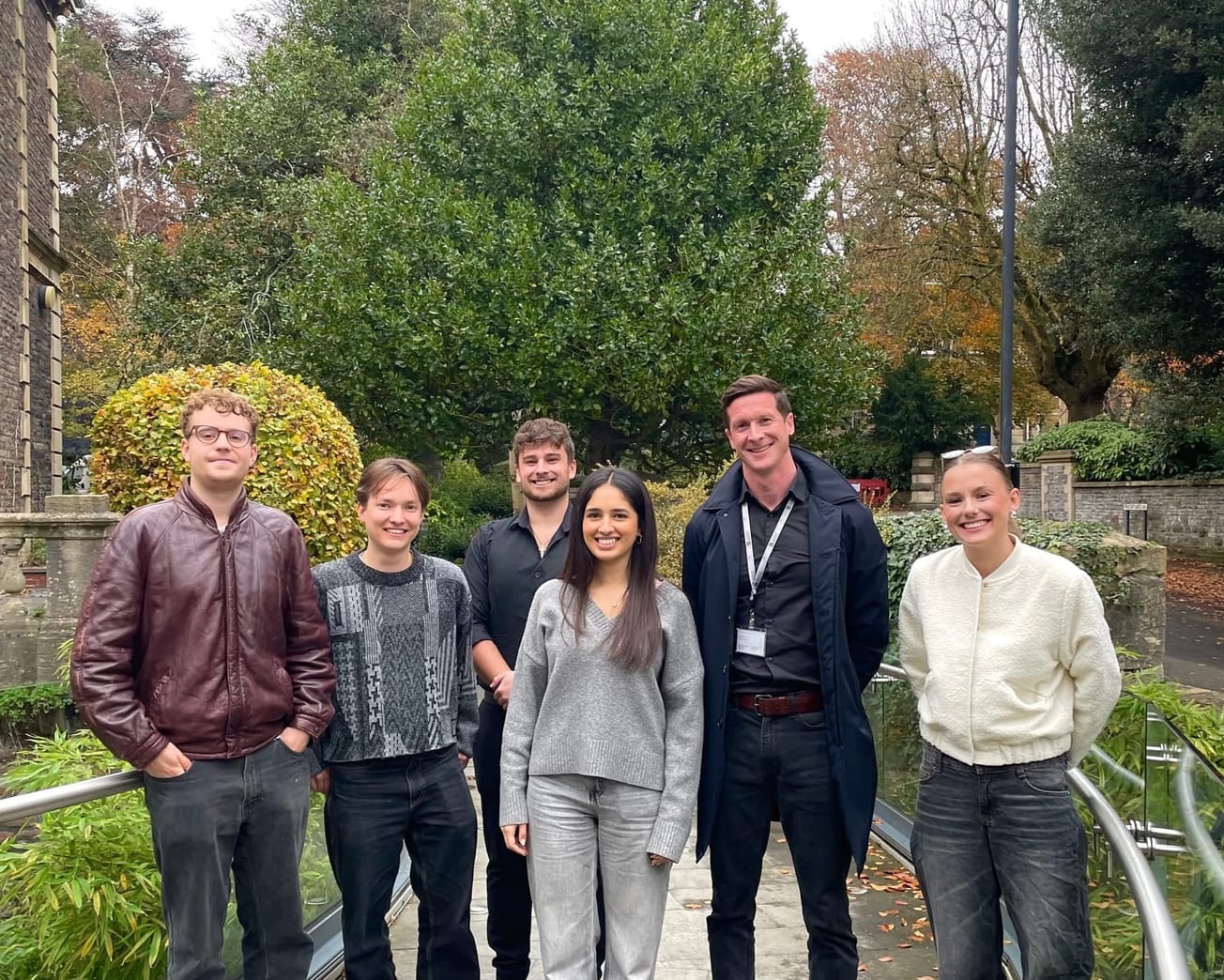By Aidan Szabo-Hall, Features Investigations Editor
A record number of UK households are now dependent on food banks, with more people than ever before resorting to their services for the first time. This is a reality that would have once seemed inconceivable for the nurses, teachers, youth workers and shop assistants who are among the 320,000 new first-time users.
This is the UK in 2023, where hungry school kids steal from their classmates and eat rubbers to feel full, where parents forgo food so their children can eat and where millions of people are precariously balanced on the breadline.
The Trussell Trust – the UK’s biggest food bank provider – distributed over 1.3 million emergency food parcels between April and September 2022. It is forecasted that last winter will have been their busiest ever.
More people are telling food banks they can’t afford to turn on the oven. Please fight UK hunger.
— The Trussell Trust (@TrussellTrust) June 10, 2022
Susannah Salino is the Head of Development at FareShare South West, a food redistribution charity that delivers to schools, food banks, community groups and charities. They work with the food industry to reduce the amount of edible food that would otherwise go to waste.
Speaking to Epigram, Susannah discusses how FareShare South West recognises this national trend of increased demand: ‘Across the whole of the South West, the picture is pretty much the same. Whether it’s in areas of Bath or Bristol which are perceived to be affluent, or areas in which there’s no food insecurity, the picture is very similar – everyone is saying they’ve got a massive increase in demand.
‘Across the whole of the UK, about 90 per cent of the charities we work with say they have had an increase in demand, and about 73 per cent of those say it’s from people who need support for the first time.’
👀 Keep a look out for 'Waste Britiain' on billboards, shopping malls and bus stops. Why not take a selfie next to one and post it here?
— FareShare (@FareShareUK) April 19, 2023
🍗 Please support our appeal https://t.co/8lkxLJE0Vw#costoflivingcrisis #wastebritain pic.twitter.com/2WwHKWKfNs
Food banks have become a staple of modern Britain. The Trussell Trust had 35 food bank centres in 2010. Now they operate over 1,400. Arguably catalysed by austerity policies – which saw billions of pounds worth of cuts to the public sector – the last 13 years have seen demand escalate with bleak consistency.
But the nature of this crisis is unique. Such acute levels of need have remodeled the profile of the average user. People who would never have previously envisioned themselves setting foot in a food bank now rely on these services.
Susannah elaborates on this worrying trend: ‘Not too long ago, it would be very unusual that you’d have a family of two working parents who would need to access a food bank. It is kind of unimaginable that that’s the situation we are in at the moment.’
Tory austerity ‘has cost UK half a trillion pounds of public spending since 2010’ https://t.co/hLBWIdKx8T
— The Guardian (@guardian) March 3, 2023
Knowing it is their tireless efforts that puts food on the table for many families, for those on the frontline, the job has never been so demanding. But their commitment comes at a cost: burnout is becoming increasingly common in a sector which, in recent years, has been given little respite.
Susannah says: ‘In a lot of the charity sector there has been a lot of fatigue, particularly coming straight out of the pandemic and into a cost-of-living crisis. It’s been a pretty intense couple of years, particularly for those who are on the frontline of delivering, organising and packing the food—there is a lot of physical work and mental fatigue.’
She stresses the importance of the volunteers and their optimism during what can be an emotional and laborious period: ‘There’s been a certain amount of strain, but our volunteers keep us afloat. Having volunteers from different environments, sectors, ages and backgrounds keeps everything a bit more buoyant whilst having to deliver something that shouldn’t actually have to be delivered. We are always looking for more volunteers and have all sorts of roles that suit different people.’
Could you spare a few hours a week? We're looking for volunteers to help, from picking and packing deliveries to driving our vans. Find out more here: https://t.co/Y4OqnfJNqD#SocialGood #FoodHeroes
— FareShare South West (@FareShareSW) September 20, 2020
Located in Easton, one of the less affluent areas of Bristol, St Mark's Foodbank outlet – run by South and East Bristol Foodbank – is experiencing a similar surge in demand. Alongside rising numbers of customers, they have seen levels of demand outpace their volume of donations.
Speaking to Epigram, Admin Officer Lauren Pritchard confirms that recent months have been their busiest period ever: ‘It’s a lot. There’s a lot of stress and there’s never really a down moment.'
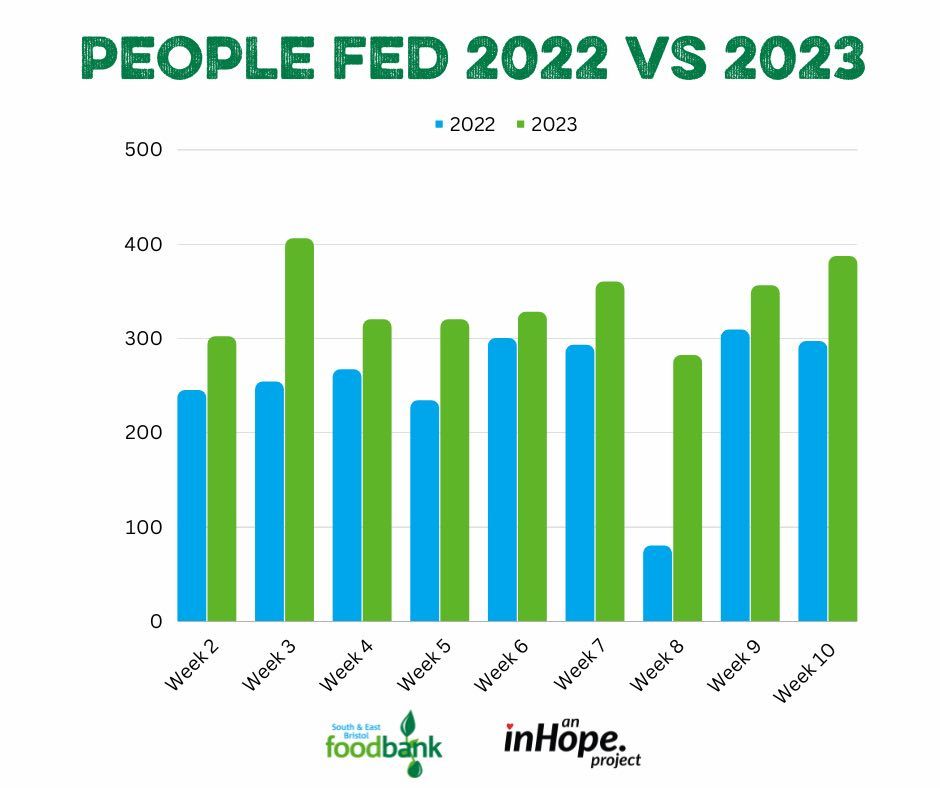
While emphasising the generosity of the public – and the supermarkets who sporadically provide them with surplus food – Lauren says that some weeks they are fearful about shortages in their supplies. Occasionally, they have to request assistance from other food projects.
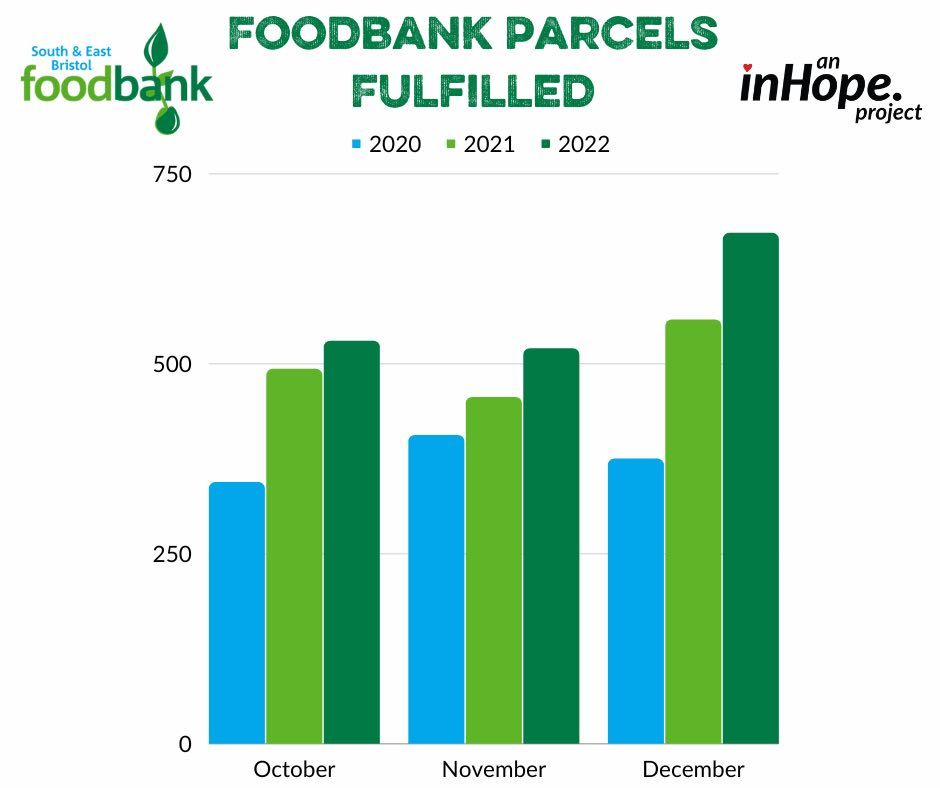
Despite this pressure, the staff, volunteers and customers at St Mark's have cultivated a powerful sense of community. Free of judgement, this is a space where anyone is welcome, irrespective of their occupation, background or history.
To describe St Mark's as just a food bank would be reductive; people come for the warmth and food, but they stay to talk, listen, receive advice, do their laundry, eat together and take part in activities. Lesley Wynne, Manager of the community café – where customers pay if they can – says that ‘It is the conversations which are the most valuable.’
Focusing on longer-term solutions, St Mark’s recognises that supplying food is ‘not the only answer’ when it comes to helping their customers. Using their referral details, they offer a ‘wrap-around’ service that tailors to the specific situation of the user. This can involve providing fuel bank support, referring users to other charities and giving advice on how to maximise their personal income.

Organisations such as FareShare South West and St Mark's are not just combatting food poverty itself, but the societal stigma that surrounds it. With so many new first-time users, this is paramount.
Profound feelings of shame or guilt may prevent some people from entering these environments, particularly if they have never done so before. Last year, Conservative MP Lee Anderson sparked widespread outrage by claiming that food bank users ‘cannot cook properly’ and ‘cannot budget.’ Similar rhetorics have been accused of amplifying the stigma already felt by potential users.
Sussanah discusses the importance of creating an inviting environment for customers, to lessen this stigma: ‘It’s a real step mentally to take the first physical step into a food bank […] so it’s about trying to make it a welcoming environment and a nicer experience. Rather than dashing in, grabbing the food and running out again, customers stay for a cup of tea and get some advice.’
Tory MP Lee Anderson branded out of touch for foodbank remarks https://t.co/FXyDJGjjtj
— BBC Politics (@BBCPolitics) May 11, 2022
Discussing how these first-time users are ‘vulnerable in a different kind of way’, Susannah says: ‘they might not have any experience of the landscape of support they could reach. Although they might be able to access their local food bank and some of the wrap-around services, they might not know about potential housing benefits, debt advice or other areas that they could receive help with.’
Fair Pay for Nursing? The wages war for Bristol nurses
Inside 'Enough is Enough': The opposition to the cost of living crisis
While the compassion and dedication of organisations like FareShare South West and St Marks is uplifting, activists claim that food banks should not exist seven decades after the introduction of the welfare state in the UK. Nor should they have been allowed to become so normalised and accepted. Once a last resort, they are now part of the everyday routine for thousands of working families.
Featured Image: Flickr / Nick Kelly
The Trussell Trust is campaigning for the government to increase the basic rate of Universal Credit, to ensure that everyone can afford life's essentials. Join their campaign here.
Donate clothes to asylum seekers in Bristol:

How to help FareShare South West in their fight against food poverty:
- Volunteer – FareShare South West are always on the lookout for more warehouse assistants, drivers, driver's mates and fundraisers. Visit their website if this interests you.
- Sign this petition to get the government to reinstate funding that will help get 100 million meals worth of food to people in poverty.
- Bristol RAG - the fundraising arm of Bristol SU - have partnered with FareShare South West. Visit their website if you would like to get involved and fundraise.
- Follow FareShare South West on socials: @faresharesouthwest
Article links:
“We eat with our women during dinner. Sitting at a table is something that many of our service users haven’t had the privilege of before, and it is a very important part of our meal services.”
Polly, One25, Bristol
2. https://faresharesouthwest.org.uk/beyond-just-the-practical-need-food-helps-us-create-a-community/
“The cost of living crisis is affecting every single one of our members, there are a lot of people joining for the first time. We’ve also seen people who had used our pantry previously and moved on now needing to come back. They were just managing and now they’re not. In addition to that we’ve had an intake of Ukrainian refugees, who are struggling to provide for themselves and also face language and culture barriers.”
Jo, Oasis Hub, Bath

